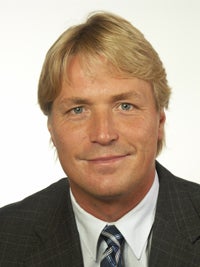Thomas Bodström, former Swedish Minister for Justice, discussed several key pieces of legislation implicated in the legal actions taken against Wikileaks founder Julian Assange, at an event hosted by the Harvard European Law Association and the Center for European Studies on Friday, April 8, 2011.
Bodström, who served as Minister for Justice from 2000 to 2006, highlighted the importance of trust among European governments in negotiating the European Arrest Warrant in 2001. Swedish authorities issued an arrest warrant in December to extradite Assange from the United Kingdom to Sweden for questioning. Assange, the target of the ongoing investigation into allegations of sexual misconduct, has appealed the decision to extradite him.
“Trust is the key word for the European Arrest Warrant,” Bodström said. “You have to have trust in each other and trust in the system, so that means when a prosecutor says we want this person because he is accused of something, the second person should trust this is correct.”
During Bodström’s tenure, he also championed Swedish sex crime legislation that took effect in 2005 and is now the foundation of the outstanding sexual assault accusations against Assange.
The new legislation enlarged the Swedish rape law by lowering the requirement of force. The elements of the crime of rape now encompass sexual exploitation, which Bodström said could entail alcohol intoxication or drug use.
“Why did we change the law? We changed it especially for young women, since there were lots of situations, where men took advantage of young women, that were never reported,” Bodström said. “We wanted to make clear if you take advantage, you have abused or hurt the victim so much that you can compare it with rape even if there wasn’t any violence.”
Bodström’s law firm is currently representing the two women who have accused Assange of sexual crimes.
Bodström added at the event that he believes the media, which has been a key player in unraveling Wikileaks material such as the Afghan War Diary and the Iraq War Logs, is only responsible to readers, not the government.
“I cannot blame the newspapers who are writing about these documents,” Bodström said. “It is not their job to protect the government.”
From 2006 to 2010, Bodström served as chariman of the Riksdags committee for juridical issues. He has since left politics and is currently working on a book about politics in Sweden slated for publication in May.
Bodström was first brought to the Swedish media’s attention in the late 1980s as a football player in AIK, a team in the Premier Division of the Swedish Football League. He graduated from Stockholm University in 1990 with a Bachelor of Laws degree and practiced law for a decade before entering politics. Bodström is also a crime fiction writer and has published several books.
